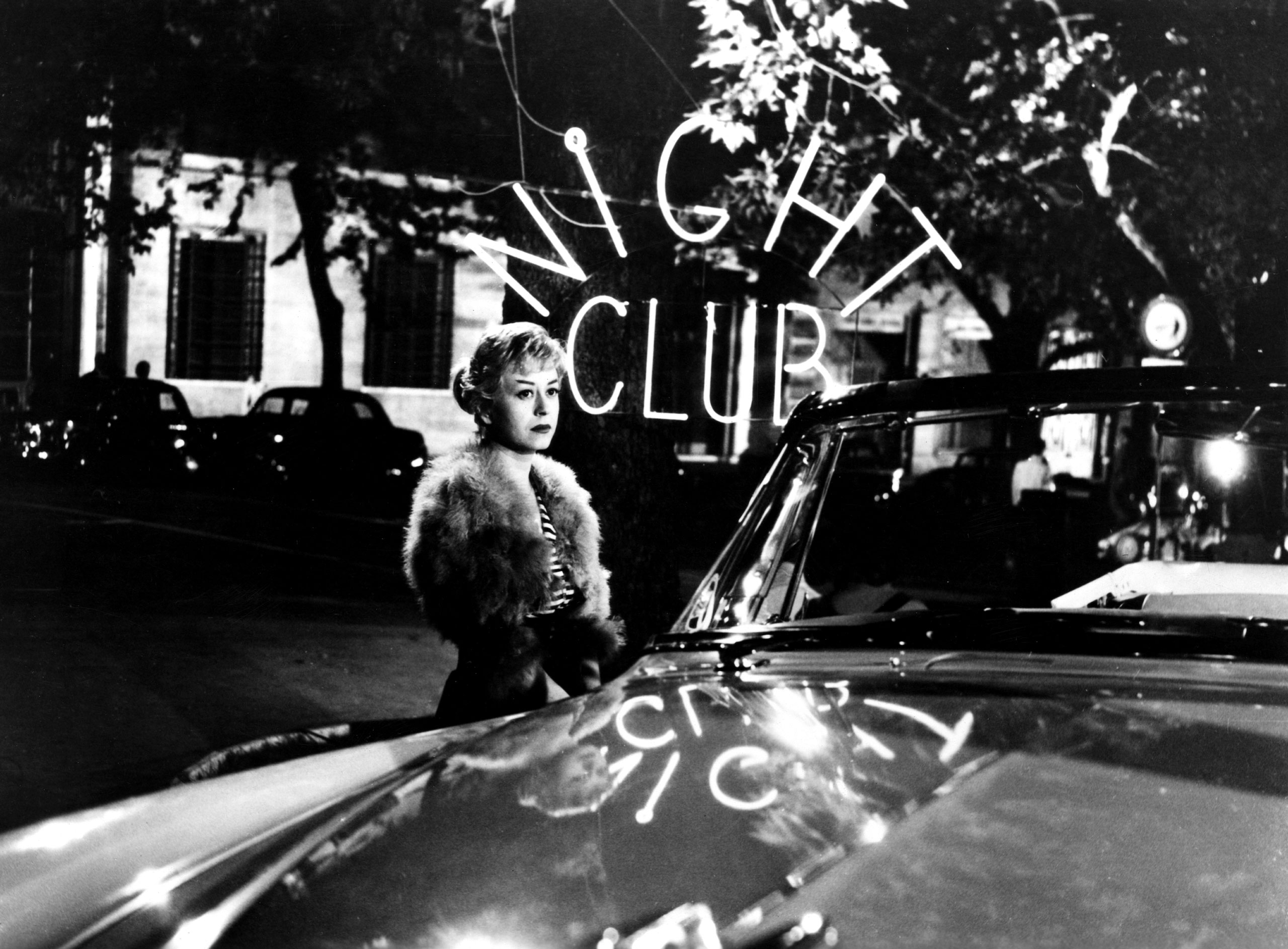To watch Giulietta Masina as Cabiria, a woman who sells her body but never betrays her sense of self, is to experience a kind of melancholy delight. When we first meet her, we know nothing of how she makes a living. She has a lover, though we quickly learn how little he cares for her: in an early scene, he grabs her purse and pushes her into a river, running off to leave her to drown. She survives, though she’s dejected and humiliated; then she goes back to her little house, a ramshackle refuge on the outskirts of Rome, and proceeds to burn her ex-lover’s shirts, clothes she’d bought for him in the first place. This is just the beginning of Masina’s seduction as Cabiria: later we’ll see her working her territory, a jaunty figure in her short furry jacket and sandals with socks—she wins us over by making us laugh with her bow-legged, vaudevillian walk, her quicksilver smile tempered by just a hint of shyness. Cabiria’s gift to us is her reminder that to be able to laugh at ourselves, and at our own misfortunes, is key to getting through life. In Nights of Cabiria, Federico Fellini’s loveliest and most moving film, Masina—Fellini’s wife and collaborator—gives one of the most perfect performances of the 1950s. This is one of the finest collaborations between husband and wife the movies have given us, a meeting of souls that unfolds on a movie screen, a glimmering reflection of a real-life marriage that couldn’t have been easy.
- Introducing the 2024 TIME100 Next
- The Reinvention of J.D. Vance
- How to Survive Election Season Without Losing Your Mind
- Welcome to the Golden Age of Scams
- Did the Pandemic Break Our Brains?
- The Many Lives of Jack Antonoff
- 33 True Crime Documentaries That Shaped the Genre
- Why Gut Health Issues Are More Common in Women
